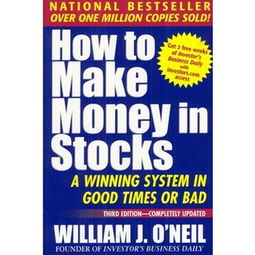How to Make Money from the Share Market: A Comprehensive Guide
Investing in the stock market can be a lucrative venture, but it requires knowledge, patience, and a strategic approach. Whether you’re a beginner or an experienced investor, this guide will help you navigate the share market and make informed decisions to potentially increase your wealth.
Understanding the Share Market

The share market, also known as the stock market, is a platform where shares of publicly-traded companies are bought and sold. It provides investors with an opportunity to own a portion of a company and potentially benefit from its growth and profitability.
Before diving into the share market, it’s crucial to understand the key terms and concepts:
- Stocks: These are units of ownership in a company. When you buy a stock, you become a shareholder and have a claim on the company’s assets and earnings.
- Shareholders: Individuals or entities that own shares of a company. They can vote on certain corporate decisions and receive dividends if the company distributes them.
- Dividends: A portion of a company’s earnings that is distributed to shareholders. It can be in the form of cash or additional shares.
- Market Capitalization: The total value of a company’s outstanding shares. It is calculated by multiplying the number of shares by the current market price.
- Index Funds: Mutual funds that track the performance of a specific stock market index, such as the S&P 500.
Research and Analysis

Successful share market investing requires thorough research and analysis. Here are some key aspects to consider:
Company Analysis
Start by researching individual companies. Look for companies with strong financials, a solid business model, and a competitive advantage in their industry. Consider the following factors:
- Financial Statements: Review the company’s income statement, balance sheet, and cash flow statement to assess its financial health.
- Revenue Growth: Look for companies with consistent revenue growth and a strong track record of profitability.
- Management Team: Evaluate the experience and track record of the company’s management team.
- Industry Position: Consider the company’s position within its industry and its potential for future growth.
Market Analysis
Understand the broader market trends and economic factors that can impact stock prices. Some key factors to consider include:
- Economic Indicators: Monitor indicators such as GDP growth, unemployment rates, and inflation to gauge the overall economic environment.
- Market Sentiment: Pay attention to investor sentiment and market trends, as they can influence stock prices.
- Political and Regulatory Factors: Stay informed about political events and regulatory changes that can impact specific industries or the market as a whole.
Building a Diversified Portfolio

Diversification is a crucial strategy to mitigate risk in your share market investments. By spreading your investments across different sectors, industries, and asset classes, you can reduce the impact of any single stock’s performance on your overall portfolio.
Here are some tips for building a diversified portfolio:
- Asset Allocation: Determine the percentage of your investments in different asset classes, such as stocks, bonds, and cash.
- Sector Rotation: Shift your investments between sectors based on market trends and economic conditions.
- Geographic Diversification: Invest in companies from different countries to reduce exposure to any single economy.
Implementing a Strategy
Once you have a clear understanding of the share market and have built a diversified portfolio, it’s time to implement a strategy. Here are some common strategies:
Buy and Hold
This strategy involves buying shares of a company and holding them for the long term, regardless of short-term market fluctuations. It requires patience and a long-term perspective.
Value Investing
Value investors look for companies that are undervalued by the market. They identify companies with strong fundamentals and a low price-to-earnings (P/E) ratio, and then buy their shares at a discount.